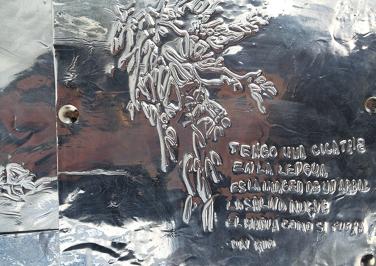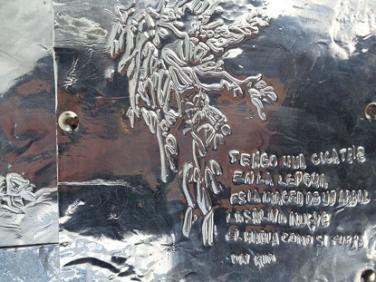
At birth and in the months immediately following, one of our first sensory relationships with the world is through our mouths. According to Freud, the oral phase ends at around eighteen months, at the moment when speech begins to develop further. We lose the need to taste and feel orally as we learn to name things. There is a projection of the word towards the object, already distanced from the salivary fluid, in order to draw it back to us. Words are a way of connecting it to our organism. We extract the world from our body in order to grasp it again with words. As in the myth of Echo and Narcissus, and as writers such as Gloria Anzaldúa have discussed in depth, landscape, body and language are woven together in intricate ways, creating paths of coming and going. In the myth, Narcissus merges with his image reflected in the water and becomes a flower, while Echo, condemned to repeat the last word that other people say, ends up secluding herself in a cave until her body becomes part of the cave and only her voice remains. In both cases, the idea of repetition and doubles is the backbone of the body-landscape fusion. In the act of resembling something, of putting something in the place of something else, of representing, a deformation appears that gives rise to new, unexpected relationships. It is in the act of representation that these relationships are played out. A drawing or a poem is also a territory.
